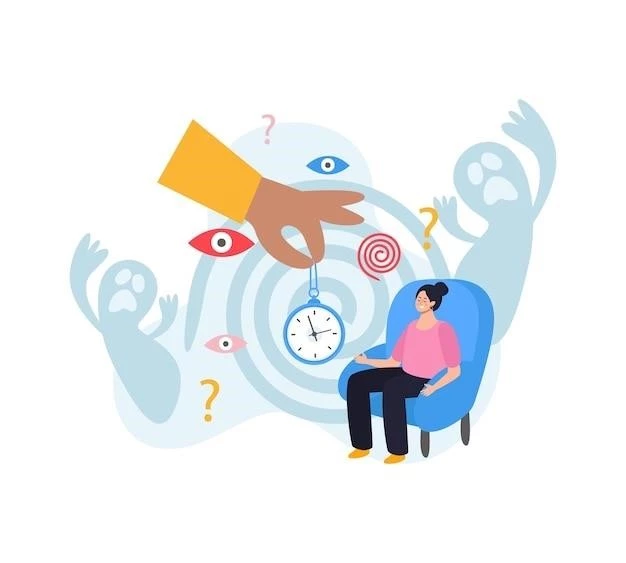Symptoms of Brief Psychotic Disorder
Symptoms of brief psychotic disorder can include hallucinations,
delusions, disorganized speech or behavior, and negative symptoms.
Hallucinations
Individuals with brief psychotic disorder may experience sensory perceptions that are not real, such as hearing voices or seeing things that others do not. Hallucinations can be distressing and contribute to significant impairment in daily functioning.
Delusions
Delusions are fixed, false beliefs that are resistant to reason or contradictory evidence. Individuals with brief psychotic disorder may hold beliefs of persecution or grandeur that are not based in reality. These delusions can significantly impact their thoughts and behaviors.
Disorganized speech or behavior
Disorganized speech or behavior in brief psychotic disorder can manifest as incoherent or illogical speech patterns, unpredictable actions, or difficulties in organizing thoughts. These symptoms can make communication and daily functioning challenging for individuals experiencing the disorder.
Negative symptoms (lack of motivation, emotions, or social interactions)
Negative symptoms of brief psychotic disorder may include reduced motivation, lack of emotional expression, and withdrawal from social interactions. These symptoms can lead to difficulties in engaging with others and participating in daily activities.
Causes of Brief Psychotic Disorder
Various factors such as genetics, trauma, and brain chemistry can contribute.
Genetics
Genetic factors play a role in the development of brief psychotic disorder, as individuals with a family history of psychotic disorders may have a higher risk of experiencing this condition. However, genetic predisposition is not the sole determinant of the disorder.
Trauma or stress
Traumatic events and high levels of stress can trigger brief psychotic disorder in some individuals. The emotional impact of trauma or chronic stress can lead to the development of psychotic symptoms, highlighting the importance of addressing psychological well-being in treatment.
Brain chemistry imbalance
Imbalances in neurotransmitters and brain chemicals may contribute to the onset of brief psychotic disorder. Disruptions in the intricate chemical signaling processes in the brain can influence perception, cognition, and behavior, potentially leading to psychotic symptoms in affected individuals.
Treatment Options for Brief Psychotic Disorder
Treatments include antipsychotic medications, psychotherapy, and hospitalization.
Antipsychotic medications
Antipsychotic medications are commonly prescribed to manage psychotic symptoms in brief psychotic disorder. These medications help alleviate hallucinations, delusions, and disorganized thinking by regulating neurotransmitter levels in the brain, promoting symptom stabilization and recovery.
Psychotherapy
Psychotherapy, such as cognitive behavioral therapy, can help individuals with brief psychotic disorder address underlying issues, improve coping skills, and develop strategies to manage symptoms. Therapeutic interventions aim to enhance insight, promote emotional well-being, and support long-term recovery.
Hospitalization (in severe cases)
In severe cases of brief psychotic disorder, hospitalization may be necessary to ensure safety, provide intensive treatment, and monitor symptoms closely. Hospital-based care offers a structured environment and access to a multidisciplinary team of healthcare professionals to support individuals during acute phases of the disorder.
Difference Between Brief Psychotic Disorder and Other Psychotic Disorders
Unique factors set brief psychotic disorder apart from other disorders.
Duration of symptoms
Brief Psychotic Disorder is distinguished by its short-lived nature, lasting from one day to one month; Contrarily, other psychotic disorders have more prolonged symptom durations.
Severity of symptoms
Brief Psychotic Disorder typically exhibits symptoms that are severe but do not impair social and occupational functioning as significantly as other psychotic disorders, where symptoms may be more intense and debilitating over time.
Impact on daily functioning
Brief Psychotic Disorder’s impact on daily life is generally temporary and less severe than that of long-lasting psychotic disorders. Individuals may experience disruptions but often regain their functional abilities relatively quickly compared to other conditions.

Coping Strategies for Individuals with Brief Psychotic Disorder
Effective strategies can help manage symptoms and enhance well-being.
Establishing a routine
Creating and sticking to a daily schedule can provide structure, stability, and predictability for individuals with brief psychotic disorder. A routine helps manage symptoms, reduce stress, and support overall mental well-being by promoting a sense of normalcy and control.
Building a support network
Having a strong support system is crucial for individuals with brief psychotic disorder. Family, friends, healthcare professionals, and support groups can offer emotional support, understanding, and guidance through difficult times, fostering recovery, and well-being.
Practicing relaxation techniques
Engaging in relaxation methods like deep breathing, meditation, or mindfulness can help reduce stress, anxiety, and promote emotional well-being for individuals with brief psychotic disorder. These techniques aid in managing symptoms and enhancing mental resilience during recovery.
Risk Factors for Developing Brief Psychotic Disorder
Various factors may increase the likelihood of developing the disorder.
Family history of psychotic disorders
A family history of psychotic disorders can elevate the risk of developing brief psychotic disorder. Genetic predispositions and environmental influences within the family may contribute to the manifestation of symptoms in individuals.
Substance abuse
Substance abuse, such as alcohol or drugs, is a significant risk factor for developing brief psychotic disorder. Substance misuse can trigger or exacerbate psychotic symptoms, complicating the course of the disorder and impeding recovery without proper intervention and treatment.
High levels of stress or trauma
Experiencing high levels of stress or trauma can increase the risk of developing brief psychotic disorder. Traumatic events or chronic stressors can overwhelm coping mechanisms, leading to the emergence of psychotic symptoms in susceptible individuals, underscoring the importance of early intervention and support.
Impact of Brief Psychotic Disorder on Daily Life
The disorder can affect various aspects of an individual’s daily routine.
Social relationships
Brief psychotic disorder can strain social connections due to altered perceptions and behaviors. These changes may lead to difficulties in communication, trust issues, and social withdrawal, impacting relationships with family, friends, and colleagues.
Employment and education
Brief psychotic disorder can hinder work performance and academic pursuits. Individuals may struggle with concentration, decision-making, and task completion, affecting job responsibilities and educational attainment. Support and accommodations are crucial for maintaining employment and educational progress.
Self-care and daily activities
Managing self-care and daily tasks can become challenging with brief psychotic disorder. Individuals may experience difficulties in maintaining hygiene, nutrition, and adhering to routines, impacting overall well-being. Support systems and structure aid in promoting self-care and daily functioning.
Recovery Process from Brief Psychotic Disorder
A structured approach is vital for achieving optimal recovery outcomes.
Medication adherence
Adhering to prescribed medications is crucial for managing symptoms and promoting recovery in brief psychotic disorder. Consistent medication intake helps stabilize neurotransmitter imbalances, reduce relapse risk, and support overall mental well-being during the recovery process.
Therapy sessions
Regular therapy sessions, such as cognitive-behavioral therapy, play a vital role in the recovery process of brief psychotic disorder. Therapeutic interventions help individuals navigate symptoms, enhance coping skills, and promote insight, fostering sustainable mental health and well-being.
Support from mental health professionals and loved ones
Receiving support from mental health professionals and loved ones is pivotal in the recovery journey from brief psychotic disorder; Compassionate care, guidance, and understanding create a conducive environment for healing and long-term well-being.
